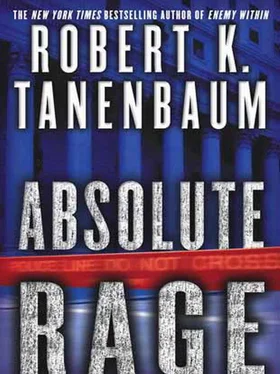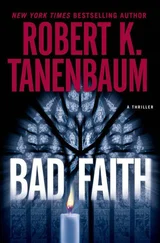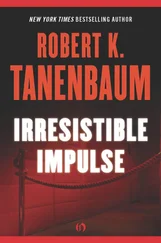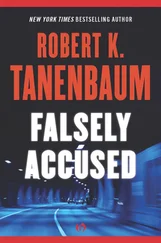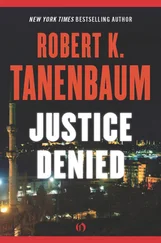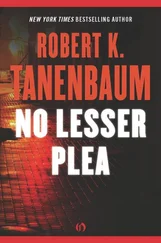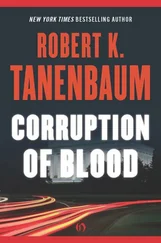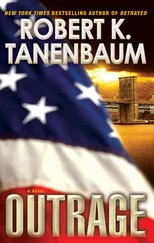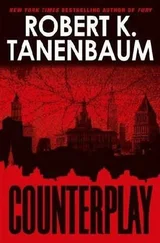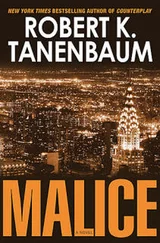Robert Tanenbaum - Absolute rage
Здесь есть возможность читать онлайн «Robert Tanenbaum - Absolute rage» весь текст электронной книги совершенно бесплатно (целиком полную версию без сокращений). В некоторых случаях можно слушать аудио, скачать через торрент в формате fb2 и присутствует краткое содержание. Жанр: Криминальный детектив, на английском языке. Описание произведения, (предисловие) а так же отзывы посетителей доступны на портале библиотеки ЛибКат.
- Название:Absolute rage
- Автор:
- Жанр:
- Год:неизвестен
- ISBN:нет данных
- Рейтинг книги:5 / 5. Голосов: 1
-
Избранное:Добавить в избранное
- Отзывы:
-
Ваша оценка:
- 100
- 1
- 2
- 3
- 4
- 5
Absolute rage: краткое содержание, описание и аннотация
Предлагаем к чтению аннотацию, описание, краткое содержание или предисловие (зависит от того, что написал сам автор книги «Absolute rage»). Если вы не нашли необходимую информацию о книге — напишите в комментариях, мы постараемся отыскать её.
Absolute rage — читать онлайн бесплатно полную книгу (весь текст) целиком
Ниже представлен текст книги, разбитый по страницам. Система сохранения места последней прочитанной страницы, позволяет с удобством читать онлайн бесплатно книгу «Absolute rage», без необходимости каждый раз заново искать на чём Вы остановились. Поставьте закладку, и сможете в любой момент перейти на страницу, на которой закончили чтение.
Интервал:
Закладка:
The elder of the two said, "Do we hafta, Maw?"
"Don't pert off, child. Do as you're told."
In short order they had a convoy of two started, Mrs. Washburn following in the red pickup.
"The Welches are good folks," said Emmett over the roar. "They just have a lot of troubles."
"Are they very poor?"
"No, really about average for Robbens County, I guess. Burt-that's the husband-he's got a mechanic's job at the mine. They got a sick kid, and Burt was laid up most of last year."
"Anyway they've got satellite TV," Marlene observed.
"Oh, yeah. Folks around here'll live on lard and flour to pay their satellite bills, thems as don't outright pirate the signal. My dad used to say that satellite destroyed the working class worse than the mine owners did. Sports and porno for the boys, soap opera for the ladies, and cartoons for the younguns. There wasn't any TV at all up here, and hardly any radio, before the dishes came in. The hollers had their own way of life. Now they're getting just like everyone else."
"Is that bad?"
"It is if they become dogs and don't mind feeding off whatever scraps the big boys toss at them. My dad reminded them of what they used to be, fighting men, union men, and all that. Now… hell, I don't know what's gonna happen to them."
Marlene did not know either. She was from a union family herself, but had never been particularly interested in working-class politics, beyond the usual guilt at worldly success and a tendency to vote the straight Democratic ticket. Lefty posturing had bored her in college, especially as pitched by the upper-middle-class kids who typically espoused it. A vague social responsibility stirred in her breast; she suppressed it. She said, "Well, let's see what we can do about getting this guy out of the can and the investigation started up again."
The jail was in the basement of a two-floor, brown-brick structure adjacent to the handsome courthouse. Marlene and Mrs. Washburn went in, while Emmett took the Washburn girls for an ice cream. The deputy in charge was a scrawny man in a tan uniform and clear-framed glasses, with thinning hair combed across his scalp. He was not pleased to be taken away from his television set. He nodded to Mrs. Washburn and stared at Marlene. "Only family allowed to visit," he warned.
"I am family," said Marlene. "I'm Cousin Marlene. From Ashtabula?" The stare increased, became incredulous; Marlene met it with her own more powerful one. The man grumpily relented and led them down a sewer-smelling iron staircase to the basement.
The jail had four cells. Moses Welch was in the only occupied one. He was a large man, fleshy like his sister, with the sweet, confused expression of the dim in his pale eyes. His hair was startlingly blond, almost white, and hung lanky over his ears.
"Hey, Betty," he cried when they appeared. "Hey, Betty, did you bring ice cream?"
Marlene was surprised and touched by the way brother and sister hugged. Betty sat on the bunk next to him and brushed the hair back from his forehead. "We'll see about ice cream later, honey. I want you to say hello to Marlene here. Marlene says she's gonna get you out of this jail. "
Marlene said, "Hello, Mose."
"I saw a mouse, Marlene. It was just there."
"That's nice," said Marlene. "Mose, tell me: Do you know why you're in here?"
"Yes'm. On account of I kilt those folks."
"Yes, but you really didn't kill them, did you?"
"Sheriff says I did. On account of those boots."
"Yes, but you didn't really."
"Those boots is too tight anyways. They was real new so I thought they would fit me. I never had no real new boots."
"Uh-huh. But you found those boots, right?"
"Yes'm. 'Neath the green bridge where they's frogs and all."
Mrs. Washburn said, "He means the bridge on 130 over the Guyandotte. He's always playing down there."
"Right. You found the boots, but you didn't kill anyone," said Marlene. "That's what you have to say from now on."
"Will I get in trouble?" the man asked, worry appearing in his mild eyes.
"No, you won't, because I'm going to be your lawyer now. Do you know what a lawyer is?"
A confused shake of his head.
"A lawyer is for when you get in big trouble. She tells the sheriff you didn't really do it. Do you want me to be your lawyer?"
The man looked at his sister, who nodded. He nodded, too.
"Okay, great!" Marlene took a paper out of her bag. "Can you write your name?"
"Yes'm. Betty learned me how."
"Good. Then I want you to write it on this line here." Marlene gave him a felt-tip and he did so, slowly, his tongue protruding in concentration.
"Can I have my ice cream now?" he asked brightly.
Marlene watched Mrs. Washburn drive off with her two chocolatesmeared kids. "Emmett, where's this Poole hang out?"
He pointed across the square. "That's his office there. Unless he's drinking at the VFW."
"I might be a while, then."
"I'll be here. Take your time."
She took her dog and entered the building, a three-story brick structure with a lunchroom on the ground floor. The directory inside the door displayed the names of the tenants, mainly lawyers and bail bondsmen, court reporters, and a couple of real estate firms. Ernest J. Poole occupied 3-E. She climbed the stairs and knocked on the door. Nothing. She pounded. Silence. The door was unlocked. Inside she found an anteroom with a secretary's desk and a shrouded typewriter, both covered with dust. A philodendron had died in a pot in the corner. She saw a frosted-glass door with the lawyer's name on it in gold letters, tapped on it, and called out, "Mr. Poole?"
She heard an indistinct human noise that she accepted as an invitation and entered. The lights were out, the venetian blinds shut. The smell was of unwashed clothes, sour-mash bourbon, and the underlying ketone stink of a drunk. The drunk was lying sprawled on a brown leather couch, drunk. Marlene nudged him. No response, except a groan and an effort to bury his face in the corner of the couch. She found the light switch, flipped it on, made a tour. The desk, a heavy mahogany structure, was covered with a scant drift of papers and unopened junk mail, a large, butt-choked ashtray, a half-empty fifth of low-end bourbon, crumpled take-out food bags, filthy paper plates and cups. These also stuffed to overflowing the nearby wastebasket. Black flies buzzed heavily through the fetid air. One wall held diplomas (UWV and Vanderbilt law school) and the sort of award plaques small-town lawyers accumulate, together with group photographs of the occupant with local notables. The newest looked about twelve years old. In the photographs, Poole was in his forties sporting a sharp Chamber of Commerce optimistic look. He wore his thick, dark hair fashionably long. A square jaw with a dimple in the chin, a broad forehead, a manly nose, and a wide mouth completed a face that might once not have been out of place on a campaign poster. Marlene yanked up the blinds. A whimper sounded from the couch. She found a coffeemaker, filled the pot with cold water from a cooler, and poured it over Ernest J. Poole's head.
He sat up, sputtering. The candidate's face, she saw, had been considerably eroded by the bad living, the features softened and gullied, the skin coarsened. The head of hair was, however, still intact, although not as neatly barbered as it had been in the photos.
"Wha… wha… who… who the hell are you? Goddamnit, I'm all wet."
"My name is Marlene Ciampi, Mr. Poole. I'm Moses Welch's new lawyer."
"Whose what?"
"Moses Welch. He's been indicted for murdering the Heeney family. You're his court-appointed attorney. Now you're my local co-counsel." She held out the paper the defendant had signed for him to read. He glanced at it without interest; all of that was reserved for the bottle on the desk. He rose, wobbled, stepped, reached for it. She was quicker.
Читать дальшеИнтервал:
Закладка:
Похожие книги на «Absolute rage»
Представляем Вашему вниманию похожие книги на «Absolute rage» списком для выбора. Мы отобрали схожую по названию и смыслу литературу в надежде предоставить читателям больше вариантов отыскать новые, интересные, ещё непрочитанные произведения.
Обсуждение, отзывы о книге «Absolute rage» и просто собственные мнения читателей. Оставьте ваши комментарии, напишите, что Вы думаете о произведении, его смысле или главных героях. Укажите что конкретно понравилось, а что нет, и почему Вы так считаете.
